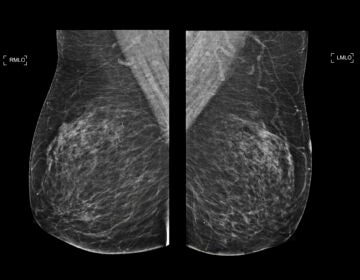Philadelphia is considering adding menopause, menstruation health issues to workplace anti-discrimination laws
The legislation would require employers to provide reasonable accommodations for disruptive symptoms of menstruation and menopause.

Philadelphia City Hall Courtyard (Emma Lee/WHYY)
From Philly and the Pa. suburbs to South Jersey and Delaware, what would you like WHYY News to cover? Let us know!
Philadelphia City Council is considering a bill that would add menstruation, perimenopause and menopause to protected workplace statuses. The legislation would require employers to provide similar accommodations that they would for other health conditions.
If passed, supporters say Philadelphia would have some of the strongest employment protections for young and aging women who may find it difficult to perform their jobs while experiencing painful and disruptive symptoms like cramps, pain, fatigue, brain fog and sleeplessness.
“Menstruation, perimenopause and menopause are not inconveniences or weaknesses. They are part of the natural rhythm of life,” said Ginny McGill, registered nurse and director of public policy for the International Childbirth Education Association. “This bill offers not only protection, but also dignity.”
The legislation was reported favorably out of the city’s Committee on Public Health and Human Services.
Disruptive symptoms that can interfere with school or work
Monthly periods can come with significant symptoms like heavy bleeding, exhaustion, cramping pain, mood changes and more.
As a former school nurse, McGill said she too often saw teenage girls try to manage these issues on their own, in silence, even when it threatened to interfere with their ability to do well in school.
They kept their discomfort to themselves out of fear, shame and confusion, she said, an “ingrained” practice that they then carried into adulthood.
“Women learn early on to deal with it, quietly to ignore pain and to normalize discomfort,” McGill told city council members Monday at a public hearing. “In the workplace, that same conditioning turns into stigma. Women may hesitate to request accommodations, fearing judgement or professional repercussions.”
It can be a similar situation for women who are aging and transitioning into menopause, said Dr. Robyn Faye, OB-GYN and certified menopause provider at Thomas Jefferson University.
This natural process can come with hot flashes and night sweats, sleep disruption, joint pain, mood changes, brain fog and other symptoms.
“Yet, despite the prevalence of these experiences, workplaces are rarely structured to accommodate them,” Faye said.
Expanding workplace accommodations
The bill would prevent employers from punishing or discriminating against workers experiencing these symptoms.
Companies would also have to provide reasonable accommodations for women when these health issues “substantially interfere with an employee’s ability to perform one or more job functions,” the legislation reads.
Accommodations could include extra bathroom breaks, flexible scheduling and remote work options, alternative uniforms that are lighter or less restrictive, temperature controls, adjusted work duties, access to private spaces, and employee resource groups.
These changes could be especially beneficial for women who work in certain industries and sectors, said Elizabeth Kukura, associate law professor at Drexel University’s Thomas L. Kline School of Law.
“It really is service workers, retail workers, contingent workers, who are often, you know, have much stricter policies around bathroom breaks, even the ability to go take a sip of water to take some medication to aid with symptoms,” Kukura said Monday as she testified in support of the measure.

Get daily updates from WHYY News!
WHYY is your source for fact-based, in-depth journalism and information. As a nonprofit organization, we rely on financial support from readers like you. Please give today.




